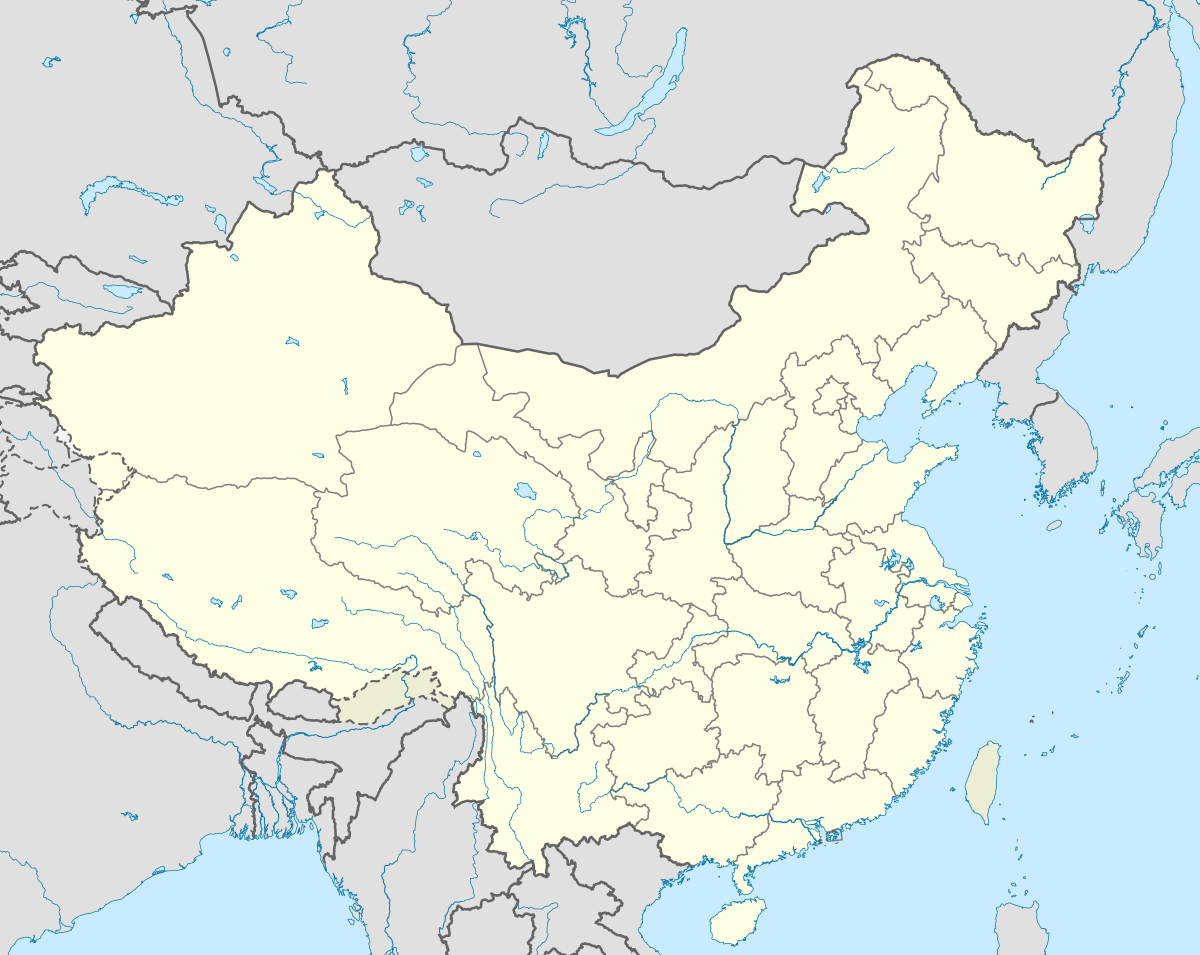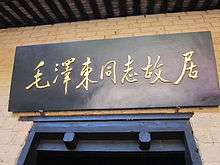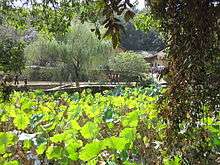Former Residence of Mao Zedong
Former Residence of Mao Zedong or Mao Zedong's Former Residence (simplified Chinese: 毛泽东故居; traditional Chinese: 毛澤東故居; pinyin: Máo Zédōng Gùjū) was built in the late Qing dynasty (1644–1911). It is located in Shaoshan Village of Shaoshan Township in Shaoshan, Xiangtan, Hunan, China.[1] The building was the birthplace and childhood home of Mao Zedong, the first leader of the People's Republic of China. It has a building area of about 472.92-square-metre (5,090.5 sq ft), embodies buildings such as the old houses, the Mao Zedong Memorial Hall, the Bronze Statue of Mao Zedong, the Cultural relics Exhibition Hall, and the Dishui Hole (Dripping Water Cave; 滴水洞).[2][3]
| Former Residence of Mao Zedong | |
|---|---|
毛泽东故居 | |
 Former Residence of Mao Zedong | |
 Location within Hunan  Former Residence of Mao Zedong (China) | |
| General information | |
| Type | Traditional folk houses |
| Location | Shaoshan Township, Shaoshan, Xiangtan, Hunan |
| Country | China |
| Coordinates | 27°54′35″N 112°29′41″E |
| Opened | 6 February 1951 |
| Owner | Government of Shaoshan |
| Technical details | |
| Floor area | 472.92-square-metre (5,090.5 sq ft) |
History

In 1893, Mao Zedong was born here, and he lived here about 17 years before leaving for his studies. He returned home in 1912 to mobilize his relatives to join the revolution, and he again returned home in 1925 and 1927. Having led the Peasant Movement in Guangzhou, he sought to start a similar movement in Hunan.[4] The house was destroyed by the government in 1929, but in 1950, the newly triumphant Communist government rebuilt the house, and it was visited by Mao's oldest son Mao Anying in May 1950. Mao again returned in 1959, eight years after the new house had been opened as a museum, and five years after it had officially been renamed Mao Zedong's Former Residence.[4]

In 1961, it was listed as a "Major Historical and Cultural Site Protected at the National Level" (全国重点文物保护单位) by the State Council of China.
In 1966, in the Cultural Revolution, the number of tourists was inflated. The site was open at all times of the day or night.
On June 27, 1983, Central Advisory Commission chairman Deng Xiaoping wrote "Mao Zedong's Former Residence" on the horizontal tablet.[4]
On December 20, 1993, the Communist Party general secretary Jiang Zemin attended the unveiling of the statue of Mao Zedong outside the house.
In July 1997, it was listed as a National Patriotic Education Base (全国爱国主义教育基地) by the Propaganda Department of the Communist Party of China.
In December 2004, it was closed for rebuilding and repairs.
References
- "1 Day Red China Tour from Changsha To Shaoshan - Hometown Of Chinaman Mao". discoverchinatours.com. 2015.
- 领袖故里 山水有情. People.com (in Chinese). 2013-07-13.
- "The Former Residence of Chairman Mao". 2015-12-02.
- 韶山毛泽东故居门匾的几次变迁(图). Xinhuanet (in Chinese). 2012-04-26. Archived from the original on 2012-04-29.
| Wikimedia Commons has media related to Former Residence of Mao Zedong (Shaoshan). |